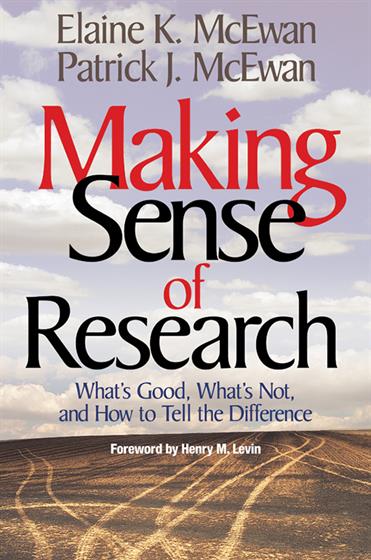Hands-on, Practical Guidance for Educators
From math,
literacy, science, equity, multilingual learners, and SEL, to assessment, school counseling,
and education leadership, our books are research-based and authored by experts
on topics most relevant to what educators are facing today.

Making Sense of Research
Foreword by Henry M. Levin
Making Sense of Research brings together the best of two worlds--the "real" world where education is practiced daily and the "ivory tower" world where research is ongoing. The authors have written this book for practitioners at all levels, from teachers making site-specific decisions such as allocating time, to administrators making schoolwide and policy decisions such as reducing class size.
This vital resource will assist them in assessing the validity of research claims by leading the reader through a revealing examination of five critical questions:
- Does it work? (the causal question)
- How does it work? (the process question)
- Is it worthwhile? (the cost question)
- Will it work for me? (the usability question)
- Is it working for me? (the evaluation question)
- Grade Level: PreK-12
- ISBN: 9780761977087
- Published By: Corwin
- Year: 2003
- Page Count: 200
- Publication date: March 14, 2003


